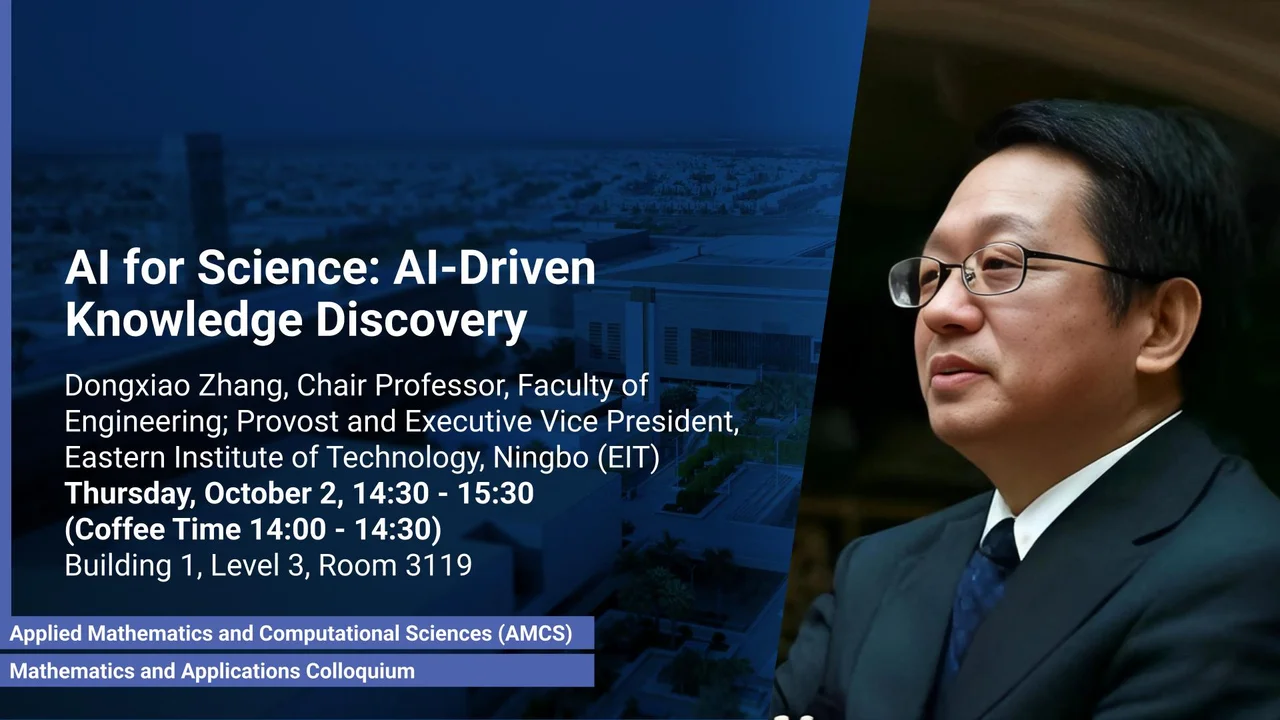
AI for Science: AI-Driven Knowledge Discovery
This talk focuses on the latest progress in this area, often called AI for Science, and specifically on how AI is revolutionizing scientific exploration and the uncovering of fundamental physical laws.
Overview
The core mission of scientific research remains to comprehend and investigate the world, and ultimately to transform it through accumulated knowledge. Within artificial intelligence (AI), the emerging discipline of scientific machine learning uniquely serves a dual purpose: it uses scientific principles to advance AI, and in turn, leverages AI to accelerate scientific discovery itself. This talk focuses on the latest progress in this area, often called AI for Science, and specifically on how AI is revolutionizing scientific exploration and the uncovering of fundamental physical laws.
We will demonstrate how hybrid methodologies (such as Symbolic Genetic Algorithm, SGA), which integrate symbolic mathematics with AI algorithms, can accurately and robustly extract governing equations from complex data. This capability has been validated across a range of challenging equations, from the Burgers equation with interaction terms to high-order KdV and exponential Chafee-Infante equations. Beyond validation, we've applied this approach to discover previously unknown equations for modeling complex phenomena such as viscous gravity flow and precipitation over complex terrain. A notable outcome from this work is EqGPT, a knowledge-guided generative framework that leverages documented PDE structures to autonomously generate, evaluate, and optimize candidate equations for recovering and uncovering complex PDEs. This state-of-the-art model has successfully identified a previously unreported PDE that governs strongly nonlinear surface gravity waves as they propagate toward breaking—a discovery made directly from real-world experimental data.
We will highlight these cutting-edge tools—SGA, EqGPT, and large language models for equation discovery (LLM4ED)—showcasing how they provide scientists with a powerful new framework to transcend the barriers between data and knowledge, leading us to a deeper understanding of nature.
Presenters
Dongxiao Zhang, Chair Professor, Faculty of Engineering; Provost and Executive Vice President, Eastern Institute of Technology, Ningbo (EIT)
Brief Biography
Professor Zhang is the Provost and Executive Vice President at Eastern Institute of Technology, Ningbo, China. He is a Member of the U.S. National Academy of Engineering, an Honorary Member of Society of Petroleum Engineers, and a Fellow of Geological Society of America. Formerly he served as the Provost and Vice President for Academic Affairs at Southern University of Science and Technology, Shenzhen, China. He held positions as Senior Scientist at Los Alamos National Laboratory, Miller Chair Professor at the Department of Petroleum and Geological Engineering at the University of Oklahoma, Chair Professor at the University of Southern California, and Executive Dean of Graduate School and Dean of College of Engineering at Peking University. He has authored 2 books and published over 320 peer-reviewed papers. He earned both his Master’s degree and Ph.D. in hydrology and water resources in 1992 and 1993, respectively, from the University of Arizona.